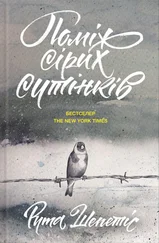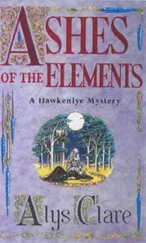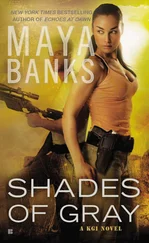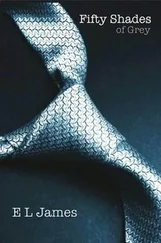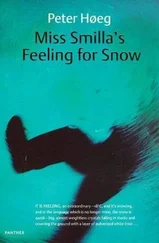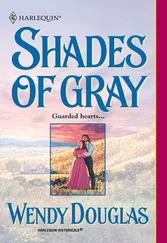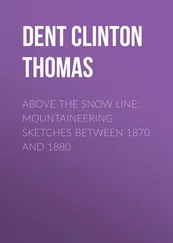My Russian improved. Jonas was still far ahead of me.
After two weeks, the barges arrived and the NKVD once again boarded us to float north.
We left Ust Kut and passed Kirensk.
“We’re traveling north,” said Jonas. “Maybe we really will sail for America.”
“And leave Papa behind?” I asked.
Jonas looked out at the water. He said nothing.
The repeater spoke of nothing but America. He tried to draw maps of the United States, discussing details he had heard from friends or relatives. He needed to believe it was possible.
~
“In America there are excellent universities in an area they call New England. They say New York is quite fashionable,” said Joana.
“Who says New York is fashionable?” I asked.
“My parents.”
“What do they know of America?” I asked.
“Mother has an uncle there,” said Joana.
“I thought all of Auntie’s family was in Germany,” I said.
“Apparently she has a relative in America. She gets letters from him. He’s in Pennsylvania.”
“Hmph. I don’t much care for America. They certainly lack for art. I can’t name a single American artist who is accomplished.”
~
“You better not be drawing me,” said the bald man. “I don’t want any pictures drawn of me.”
“Actually, I’m almost finished,” I said, shading in the gray area of his spotted cheeks.
“Tear it up,” he insisted.
“No,” I said. “Don’t worry, I won’t show it to anyone.”
“You won’t, if you know what’s good for you.”
I looked down at my drawing. I had captured his curled lip and the surly expression he always wore. He wasn’t ugly. The deep lines above his brow just made him look cranky.
“Why were you deported?” I asked him. “You said you were a stamp collector. But why would they deport you for collecting stamps?”
“Mind your own business,” he said.
“Where is your family?” I pressed.
“I said it’s none of your business,” he snapped, pointing his crooked finger at me. “And if you know what’s best for you, you’ll keep your drawings out of sight, you hear me?”
Janina sat down next to me.
“You’ll never be a famous artist,” said the bald man.
“Yes, she will,” argued Janina.
“No, she won’t. You know why? Because she’s not dead. But maybe there’s still hope for that. America, bah.”
I stared at him.
“My dolly’s dead,” said Janina.
WE APPROACHED JAKUTSK.
“Now we shall see. We shall see,” said the repeater, fidgeting. “If we disembark here, we will not go to America. We will not go.”
“Where would we go?” asked Jonas.
“To the Kolyma region,” said the bald man. “To the prisons, maybe Magadan.”
“We’re not going to Magadan,” said Mother. “Stop such talk, Mr. Stalas.”
“Not Kolyma, no, not Kolyma,” said the repeater.
The barges slowed. We were coming to a stop.
“No, please, no,” whispered Jonas.
Mrs. Rimas began to cry. “I can’t be in prison this far from my husband.”
Janina tugged at my sleeve. “Liale says we’re not going to Kolyma.”
“What?” I said.
“She says we’re not going.” She shrugged.
We crowded near the edge of the barge. Some of the NKVD disembarked. Kretzsky was among them. He carried a rucksack. A commander met the guards on the shore. We watched as they checked assignments.
“Look,” said Jonas. “Some of the NKVD are loading supplies onto the boat.”
“So we’re not getting off here?” I asked.
Suddenly, voices rose from the bank. It was Kretzsky. He was arguing with a commander. I understood the commander. He told Kretzsky to get back on the barge.
“Kretzsky wants to stay,” said Jonas.
“Good, let him stay,” I said.
Kretzsky flailed his arms at the commander, who pointed back at the boat.
Mother sighed and looked down. Kretzsky turned back toward the barge. He wasn’t leaving. He was coming with us, wherever we were going.
The passengers cheered and embraced as the barge pulled away from Jakutsk.
• • •
A week later spirits were still buoyant. People sang on the deck of the barge. Someone played an accordion. Kretzsky stormed through the crowd, shoving people aside. “What’s wrong with you? Are you all imbeciles? You cheer as if you’re going to America. Fools!” he yelled.
The elation collapsed to murmurs.
“America. America?” said the repeater quietly.
Where were they taking us? It was already August. Temperatures dropped as we sailed northward. It felt like late October, not summer. The forests along the bank of the Lena thinned.
“We’ve crossed into the Arctic Circle,” announced the man who wound his watch.
“What?” gasped Jonas. “How can that be? Where are they taking us?”
“That is correct,” said the repeater. “We’ll go to the mouth of the Lena and get on huge steamships to America. Steamships.”
The barges stopped in Bulun and Stolbai in the Arctic. We watched as large groups were herded off the barge and simply left standing on the deserted shore as we pulled away. We sailed on.
In late August we reached the mouth of the River Lena. The temperature was just above freezing. The icy waves of the Laptev Sea crashed against the barge as it was moored to the shore.
“Davai!” yelled the guards, jabbing us with the butts of their rifles.
“They’re going to drown us,” said the bald man. “They’ve brought us all this way to drown us and get rid of us here.”
“Dear God, no,” said Mrs. Rimas.
The NKVD threw a wooden plank against the side of the barge. They pushed the children down the plank, screaming for them to hurry.
“Hurry, where? There’s nothing here,” said Mother.
She was right. It was completely uninhabited, not a single bush or tree, just barren dirt to a shore of endless water. We were surrounded by nothing but polar tundra and the Laptev Sea. The wind whipped. Sand blew into my mouth and stung my eyes. I clutched my suitcase and looked around. The NKVD made their way to two brick buildings. How would we all fit? There were more than three hundred of us.
Kretzsky argued with some of the NKVD, repeating that he had to go to Jakutsk. An NKVD with greasy hair and brown crooked teeth stopped us.
“Where do you think you’re going?” he demanded.
“To the buildings,” said Mother.
“Those are for the officers,” he snapped.
“And where are we supposed to stay?” asked Mother. “Where is the village?”
The guard waved his arms wide. “ This is the village. You have the whole village for yourself.” The other NKVD laughed.
“Excuse me?” said Mother.
“What, you don’t like it? You think you’re too good for this? Fascist pig. Pigs sleep in the mud. Didn’t you know that? But before you sleep, you have to finish the bakery and build a fish factory.” He moved closer to Mother. His corroded teeth protruded from under his top lip. “You fascists like fish, don’t you? You pigs disgust me.” He spit on her chest and walked away. “You don’t even deserve the mud,” he yelled over his shoulder.
They made us carry bricks and wood from the barge. We filed in and out of the barge’s deep hold, carrying as many bricks as we could. It took ten hours to unload the barges. In addition to bricks and wood, we carried barrels of kerosene, flour, and even small fishing boats, all for the NKVD. My arms trembled with fatigue.
“Liale says we’re not going to America,” announced Janina.
Читать дальше
![Рута Шепетис Ashes in the Snow [aka Between Shades of Gray] обложка книги](/books/414915/ruta-shepetis-ashes-in-the-snow-aka-between-shades-cover.webp)
